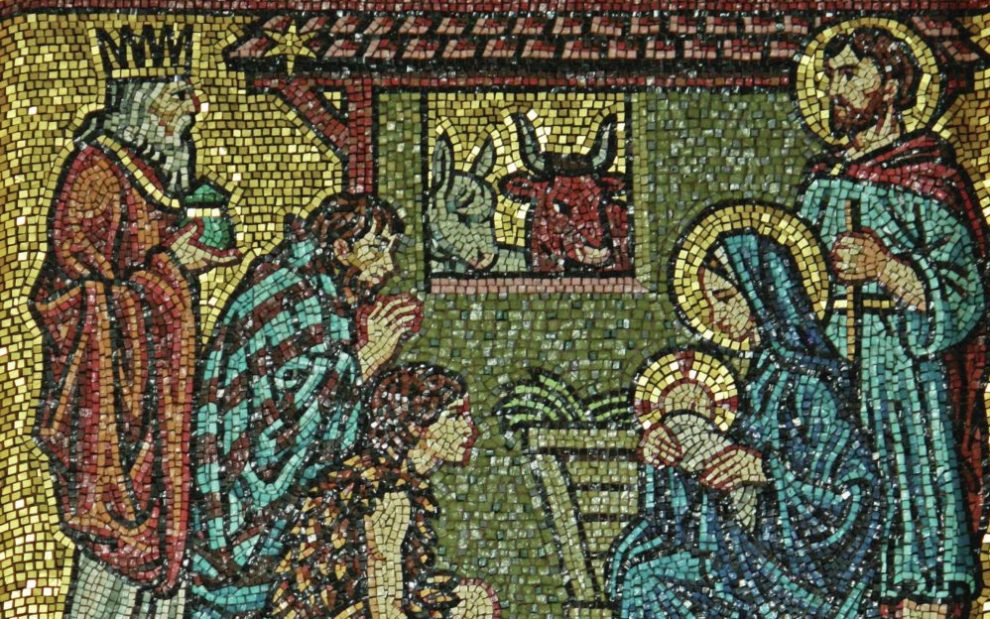Christmas celebrates a love so amazing it is beyond imagination and words. But what can this feast tell us about who the Catholic faith community is called to become, especially in times of such uncertainty and anxiety?
I offer some insight from a presentation I once gave at the Los Angeles Religious Education Congress—one of the largest Catholic gatherings in the United States and perhaps the world. The topic was “Jesus and the Virtuous Life.” We gathered when the church was buffeted by waves of scandalous headlines: the Pennsylvania grand jury report detailing decades of horrific violations of and official indifference toward sexual abuse victims and survivors. The unprecedented demotion of a high-ranking churchman, stripping him of his position as a cardinal. The historic meeting of the world’s church leaders at the Vatican to address the global reality of clergy sexual abuse. All of this swirled around us, and an atmosphere of crisis engulfed the catechists and youth leaders in attendance.
In this heavy moment, the thesis of my presentation was simple and direct: “The credibility and integrity of the church will rise or fall upon its ability to lead people to a life-changing encounter and relationship with Jesus.” I argued that one reason for the crisis in the Catholic Church is that it—institutionally and collectively—has lost its way. It has made itself— its clergy, institutional standing, social influence, and self-preservation—the focus of its mission. What is needed, I suggested, is a refounding of the church. Just as religious orders were mandated by the Second Vatican Council to recover the original inspirations of their founders and update their missions in light of changing circumstances, so the Catholic Church now has to retrieve the original inspiration of its founder, Jesus.
Doing this changes the focus of our preaching and teaching. Instead of starting with the truths of a catechism, religious education becomes an invitation to a life of discipleship. The church would be a faith community that makes the life of Jesus the pattern for its own. The church’s mission becomes helping people to “let the same mind be in [them] that was in Christ Jesus” (Phil. 2:5) and become models of Jesus in the contemporary world.
But more important than what Christians would do—live and love like Jesus—would be the reason for living such a life. In a church that refocused on Jesus, the motivation for our discipleship would not be fidelity to ethical dictates or commands. Instead, the moral life becomes a life lived in response to Jesus’ love for us. As the first letter of John says, we love because God first loves us. Pope Francis constantly reminds us of this message, as he does in the 2013 apostolic exhortation Evangelii Gaudium (The Joy of the Gospel): “Christian morality is not . . . a catalogue of sins and faults. Before all else, the Gospel invites us to respond to the God of love who saves us, to see God in others and to go forth from ourselves to seek the good of others.”
In my talk, I showed how living authentically in response to God’s love for us dramatically affects how we think about masculinity, racism and white privilege, climate change, and sexual shame. The key message is one still valuable today: The church needs to recenter itself on Jesus and help people encounter God’s amazing love so that they would want to embrace Jesus’ life as the pattern for their own.
This leads to the message of Christmas. This feast is about more than the scenes of angels and shepherds depicted in our carols, cribs, and holiday cards. The mystery of Christmas is that God—the Incomprehensible Infinite Reality—does the unthinkable: God becomes a human being, with all our vulnerabilities and limitations. Christmas celebrates God’s love becoming human for us.
In a church that refocused on Jesus, the motivation for our discipleship would not be fidelity to ethical dictates or commands.
In a Jesus like us who bleeds, hungers, and dies, we see someone who spent his whole life centered on making the God who loved him real to others. His whole life focused on making God’s love visible and tangible for us—so that we in turn would spend our lives loving and living as he did. Christmas is about the mystery of love: God’s love for Jesus; Jesus’ love for us; and our love for one another, especially the hungry, thirsty, homeless, and imprisoned.
Christmas calls the church to refocus on its core mission: to lead people to a life-changing encounter with the love of God through Jesus. This is the key to the church’s conversion and credibility. That would be a Christmas gift to celebrate.
This article also appears in the December 2021 issue of U.S. Catholic (Vol. 86, No. 12, pages 40-41). Click here to subscribe to the magazine.
Image: Flickr/Father Lawrence Lew, O.P.
















Add comment